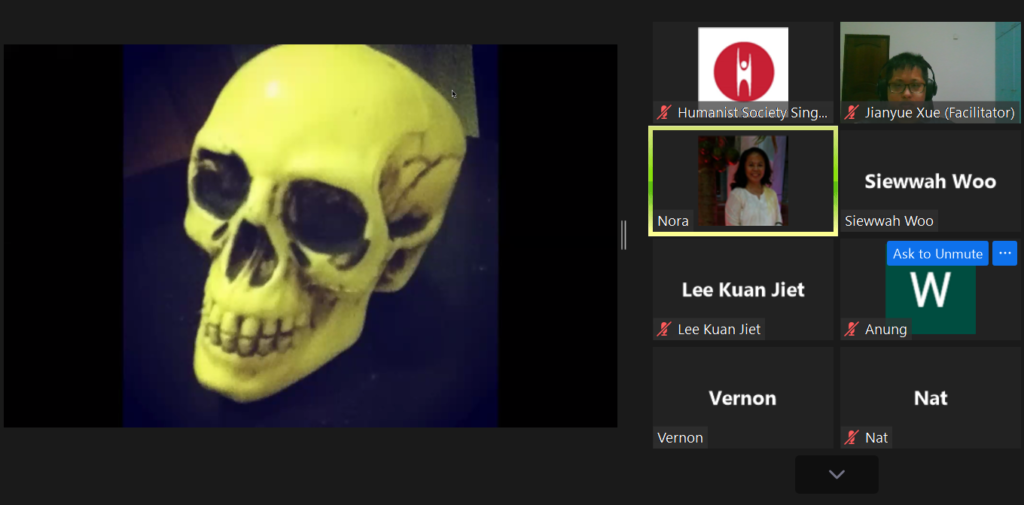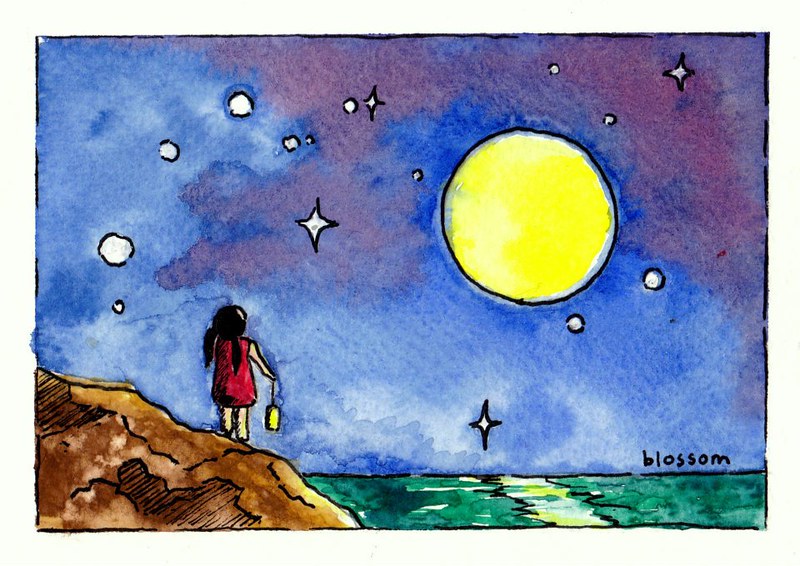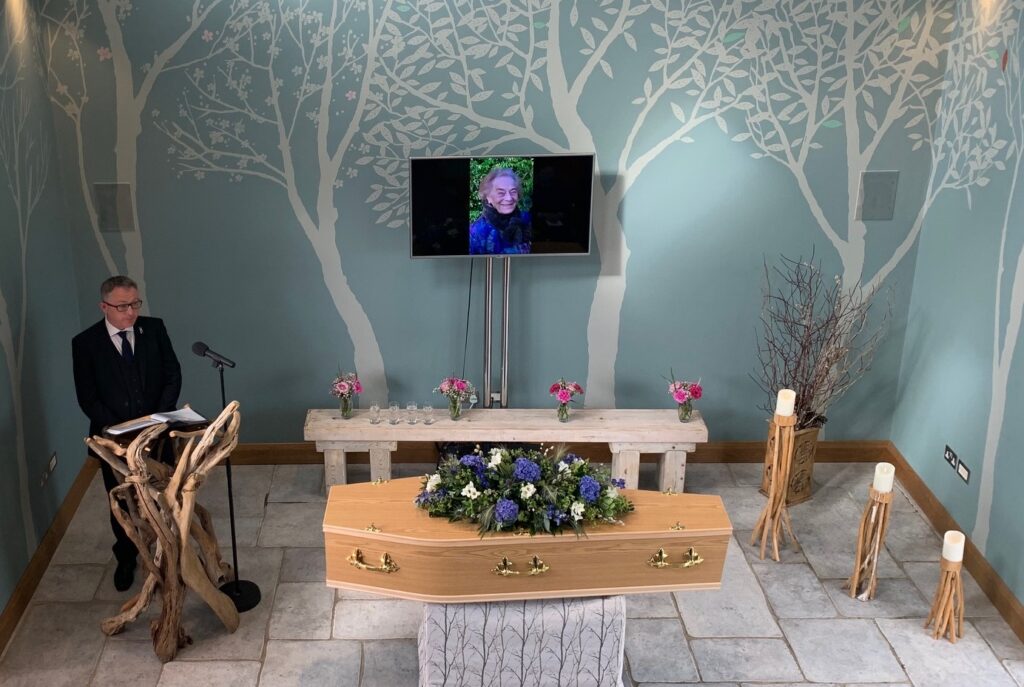
On 20 November 2021, the Humanist Society (Singapore) Palliative Care Working Group held its first Death Cafe to help the non-religious converse more comfortably about death.
Death Cafe is an agenda-free discussion about death. The idea originated with the Swiss sociologist and anthropologist Bernard Crettaz who organized the first café mortel in 2004. Inspired by Crettaz’s work, Jon Underwood developed the Death Cafe model and popularized it worldwide.
It is not easy to talk about death, given that many humanists and atheists do not believe in the afterlife. In addition, discussing death is still regarded as taboo in many Asian cultures.
So it was a pleasant surprise that a refreshing and poignant discussion emerged at the two-hour Death Cafe. The following topics were discussed:
- What do you think of death?
- What is a “good” death?
- How do we face death?
- How do we comfort a dying person, religious and irreligious?
- What would you want for your funeral?
- Deathbed conversions
For privacy, names are not attributed to various opinions.

What do you think of death?
Many non-religious participants accepted that there is nothing after death. However, they still have concerns. One participant said he is still “worried about those who are still living” while another is worried about any unfinished business.
The idea of complete death can also be scary because it is unknown. One participant imagined herself being alone in a dark spot, not being able to hear, see, smell anything. Another participant said the process of dying is difficult, since the body fights against it, causing pain and requiring palliative care.
Thus, it is important to regard every living moment as a gift, and make good choices so there are no regrets. Some say death is a form of relief. “Think about the resources, the animals to kill, the people to support my life. When I die, the burden is lifted from me”, said one participant.
What is a “good” death?
Most participants want a painless death, with not much struggle. Many do not want to be attached to a respirator. Ideally, one should die painlessly in sleep.
Some want a meaningful death, and not death from random causes. “If my death improves the well-being of people alive, with meaning, some degree of pain is bearable,” said one. For example, the deceased’s organ can be donated to someone who needs it.
A good death is also when loved ones of the deceased are prepared financially and mentally.
Also, when one has reached an advanced age, it is time to go.
How do we face death?
“When we’re inside our mother’s womb and don’t know about the outside world, we can’t choose when to be born and live,” said one participant. “The same can be said about the fact that we can’t choose when to die.”
Another likened it to a sleepless dream. “You’re tired and go to sleep. Some wake up the next day as usual. Some don’t wake up, and that’s the end.”
One adopted a spiritual (but not religious) approach, where there is more than death, and consciousness existing beyond it.
Because it can be difficult to face death, Cafe participants suggested that individuals in the final days can:
- Think about their legacy, what do they want their children to remember
- Or imagine what happens after death, looking at paintings, videos or even hearing songs.
What can we say to comfort a dying person, religious and irreligious?
The caregiver can go through the good things the person did in his/her life, reminiscing the good times.
Comfort the person: “You’ll be in a better place. I don’t know what it is, but when I join you, I will know too.”
One non-religious participant is willing to relate to religious stories to comfort a dying religious person. To them, as long as it alleviates their suffering, they are willing to do this humanitarian service. One humanist brought a religious gift and wished the dying person all the best, making her comfortable in her last days. He even told her: “If you see Jesus, say hi for me.”

What would you want for your funeral?
Participants raised these wishes:
- Share fond memories and happy moments of the deceased. Give closure. Give an account of me, share memories/stories of me.
- Some music!
- “Free to commemorate me any way you want. If we don’t think much about death, why have a ceremony? Funerals are for people beyond me. Rituals are expressions of emotions. Funerals reflect that. Funerals can help the loved ones of the deceased go through the Four Stages of Grief: Denial, Depression, Anger, Acceptance.”
(Check out this article: Non-Religious Funeral Readings)
Below, a non-religious funeral in the United Kingdom. Barbara Fogg’s funeral led by Simon Bull.

Concerns on deathbed conversions
Participants acknowledge the problem that families could argue over religious funerals. This happens when there are deathbed conversions.
Sometimes when people are dying in hospitals, they are a target for proselytisation. Sometimes the loved ones you left behind lie about you converting.
In Malaysia, the situation is worse because the state is involved. State authorities will engage in body snatching of a deceased when they suspect he/she is Muslim. The deceased will then be accorded an Islamic burial.
Conclusion
The Death Cafe ended well, with some participants calling for a repeat of this event. The Society thanks our Secretary, Nora, for organising.
If you are interested to help the Humanist Society organise more of such Death Cafes, write in to us at info@humanist.org.sg
The Humanist Society (Singapore) Palliative Care Working Group is formed in Jan 2021 to looking into better support non-religious people receiving end-of-life care. If you or a loved one is receiving end-of-life care, we have compiled some resources for you in our Palliative Care Portal: https://humanist.org.sg/palliative-care-portal/




